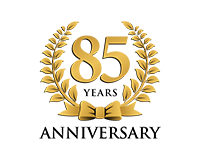Honours (Higher) Diploma on
Business Accounting & Finance
A programme designed to equip you with the potential to become a senior manager, administrator or executive in business management, accounting and finance, in commercial and public organisations.
A very popular Programme which provide specialist knowledge of accounting and finance and advanced management and administration, as well a wide range of other important areas needed for career and managerial success. The possession of an Honours Group Diploma demonstrates knowledge and ability and indicates that the holder has the competence, understanding and potential to become a successful middle or senior manager, administrator or executive in his or her chosen study area of accounting, finance and business, and in general industry, management, business, public service and other career vocations.
ALSO:
(1) SPECIAL OFFER Valid until 30th June 2024
- This Special Offer provides a FREE course on Key Concepts In Accounting & Finance to anyone who enrols* for any Diploma Program in: Accounting & Finance in Business & Management; Business Bookkeeping & Accounting; Cost Accounting; Financial Management; OR for any Honours Diploma, Baccalaureate or EBA Programme with an Accounting or Finance specialisation.
- *This Special Offer is only valid for new enrolments; no other offer or free course applies with this Special Offer.
(2) During the “Covid-19” (Corona) virus pandemic and in lock-down periods, affected Members may be allowed to take Assignments (home-based course work) instead of or in addition to sitting Examinations to complete the Programme; details can be provided on request after enrolment onto the Programme.
- Summary of major topics
- What is included
- Related courses
- Study & Career development
The Programme comprises of four key ‘courses’; there are three (3) compulsory/mandatory courses of study and one (1) option/elective course of study, as follows:-
Compulsory/Mandatory
- Accounting & Finance in Business & Management
- Financial Management
- Advanced Management & Administration Theory & Practice
plus one**of:
- Business Bookkeeping & Accounts
OR
- Cost Accounting
Summarised details of each course comprising this Honours Diploma:
ACCOUNTING & FINANCE IN BUSINESS & MANAGEMENT
- The need for accounting information, accounting functions.
- Bookkeeping and the books of account: the ledger, principles of double-entry bookkeeping manually and by computer.
- Business units, liability.
- Financing businesses, capital, ordinary and preference shares, loans, debentures.
- Principles of investment and financial decisions.
- Working capital: composition, computation.
- Accounting concepts.
- Trading, manufacturing and profit & loss accounts, balance sheets, other statements; contents, purposes, layout, presentation.
- Interpreting financial statements, accounting ratios, break-even analysis.
- Planning, forecasting, budgets, budget preparation, budgetary control.
- Income, expenses.
- Stock control, inventory costs, stock levels, records, stocktaking, valuation, work in progress.
- Bank accounts.
- Control over gross and net profits, cash and funds flow, credit limits and credit control.
- Auditors and auditing, pricing policy.
- Cost accounting, costing methods, standards, variances, overheads.
- Partnership, departmental, branch, hire purchase accounting.
- Investments: working and fixed capital, financial assets, returns, risk, financial decisions, funding, investment strategy, gearing.
FINANCIAL MANAGEMENT
- Nature and importance of capital investment decisions; resources involved.
- investment appraisal methods, accounting rate of return (ARR), return on capital employed (ROCE), payback period.
- Net present value (NPV), risk in investment appraisal, calculating and using probabilities; impact of interest and inflation, premiums; considering wealth.
- Investment in practice and reality, logical investors.
- The cost of capital; review and control for capital expenditure projects, decision management, audit.
- Short-term finance, gearing, factoring, discounting. Sources: internal, external, profits, credit control.
- Long-term finance, the stock exchange, primary and secondary markets, stock listing.
- Shares, share issues, debentures, small business finance, venture capital, funding, business angels, Government.
- Managing working capital, definition, elements, scale of capital.
- Managing stocks, stock ordering systems, MRQ, JIT, inventory models.
- Budgeting for demand, financial ratios, debtor and credit control.
- The working capital cycle; discounts, collection policies, settlement period.
- Cash management and budgets, the cash cycle.
- Policies for working capital control; balance, banking, overdrafts.
ADVANCED MANAGEMENT & ADMINISTRATION THEORY & PRACTICE
- The evolution of management theory, principles of management.
- The classical and early theorists; Fayol, Weber, Taylor, Mayo, scientific management, authority, discipline, modern developments.
- Organisational theory: objectives, categories, ownership, environmental factors and interaction. Open and closed systems theory.
- Coordination, cooperation, structure, control. Communication theory.
- Organisational structures, planning, growth and development, organisation charts.
- Systems and systems diagrams.
- Duties and responsibilities of executives, delegation, responsibility.
- Mission, vision, values, MBWA.
- Motivational theory: human relations, social psychology; self-realisation, motivation-hygiene, expectancy theory.
- Theorists: Argyis, Maslow, McGregor, Likert, Herzberg, Vroom, Handy; intrinsic and extrinsic factors.
- Leadership theory: traits, style, contingency; theorists.
- Building workgroups, group behaviour, norms, cohesiveness.
- Managing change, culture, Moss Kanter, learning organisations, entrepreneurship.
- Strategic management; Fayol, Chandler, Andrews, Ansoff, BCG, Porter, SWOT, barriers to entry, industrial competitiveness.
- Corporate objectives, policies, business ethics, social responsibilities.
PLUS Either**: BUSINESS BOOKKEEPING & ACCOUNTS
- Books of Account: the ledger, 4-column cash book, purchases book, sales book, returns books, the journal: what they record and why.
- Accounting terms.
- Bank accounts, reconciliations, statements.
- Theory and practice of double-entry bookkeeping: types of ledger accounts, posting, folios.
- Opening a new set of accounts; extracting and agreeing trial balances; errors and limitations.
- Cash and credit.
- Preparing for final accounts: stocktaking, valuing stocks, work in progress; journals, adjustments; prepayments, accruals, depreciation, bad debts, provisions.
- Goodwill. Discounts: reasons, bookkeeping.
- Manufacturing accounts, trading accounts and profit & loss accounts - why they are prepared, what information they contain, layouts.
- Gross and net profit and loss, prime cost.
- Foreign exchange.
- Balance sheets: production and layouts, comparisons between periods and companies.
- Interpreting final accounts, uses of accounting ratios.
- Provisions, reserves, loans, overdrafts. Cost accounting.
- Limited liability companies. Partnerships.
- Capital, shares, dividends, drawings.
- Departmental, branch and hire purchase accounts, bills of exchange.
- Computerised accounting systems, their advantages.
OR: COST ACCOUNTING
- Scope and definition of cost accounting. Common techniques, and types of information provided.
- Cost accounting terminology; classification of costs: overheads, direct, total; cost centres and units.
- Cost behaviour; distinguishing differences, classes, prediction of costs, analysis methods and models.
- Accounting for labour costs, remuneration methods, direct and indirect labour, output, time-based systems.
- Material costs; pricing methods, FIFO, LIFO, AVCO; stock valuation, problems, just-in-time concept.
- Absorption costing; bases and rates; costs centres; fixed costs and overheads, two-stage process.
- Activity based costing; importance and framework, short- and long- term costs, AMT, cost drivers.
- Marginal costing, calculations; revenue statements, contribution, breakeven analysis, profit/volume.
- Marginal costing and short-term decision making; make or buy decisions, discontinuing products, opportunity costs.
- Planning, budgeting; control, zero-based, activity-based, behavioural aspects.
- Relationship of standard costing and budgets; variance analysis: calculation, investigation, analysis.
- Capital investment appraisal; techniques, discounted cash flows, ARR, IRR, NPV, payback, risk.
WHAT IS INCLUDED IN THE FEE FOR THIS HONOURS GROUP DIPLOMA PROGRAMME
Your CIC Fee includes:-
- Your enrolment/registration with Cambridge International College, and your own high-quality, professionally produced and illustrated comprehensive International CIC Core Study Publications for each of the four (4) ‘courses’ of study.
- CIC’s detailed, professional ‘Study & Training Guide’ with full instructions on how to study to achieve success and gain top results. The Guide includes detailed advice on how to answer Tests and Examinations.
- Training Tests, Questions and Exercises (which can be used as ‘Past Papers/Questions’), and Recommended Answers for most of them.
- An Examination set for each of the 4 core courses; each Examination is sat under Invigilation/Supervision in your own area - full details, guidance and explanation of how your Examinations will be arranged and how Invigilation is conducted will be provided when you register. Note, CIC arranges Examinations in over a hundred countries worldwide for thousands of Members every year; it is a flexible, straightforward process and will be arranged when YOU are ready to write your Examination.
- A prestigious Cambridge International College Diploma on successful completion of Study & Training and on passing the Examination for EACH of the 4 core courses, PLUS the International Honours Group Diploma when all 4 courses have been completed - this is a total of 5 awards - 4 individual Diplomas plus the Honours Diploma.
- Your personal page on CIC’s Member Services website with access to results, despatch details, advice and guidance, and more: www.cambridgeinternationalcollege.co.uk
- Regular information and news including: Newsletters with details of special offers and new Programs and much more; and Competition Forms; by email and post.
- Everything needed for your Study & Training success is included in the CIC Fee.
Additionally:
Further Study and Training Advice, and Assistance is available before, during and after CIC Study & Training; Members may ask CIC’s team of experienced Consultants for advice on further study and Programmes to improve career prospects and advancement.
CIC’s experienced and helpful staff can assist with numerous special requests, such as reference/recommendation letters and transcripts, and more, by post and email.
- Credit Management & Control Diploma 12 months (flexible)
- Business Finance & Investment Mastery of Management Graduate Diploma One year (flexible)
- Financial Administration (BFA) Baccalaureate 2 years (flexible)
- Finance & Investment Administration EBA: Executive Business Administration 3 years (flexible)
- Commerce & Administration (BCA) Baccalaureate 2 years (flexible)
CIC Members who have completed this and other Honours Diplomas have gained career success, recognition, promotion and better employment, salaries and benefits. This Honours Diploma Programme is the path to career success and high positions for a very wide range of accounting, finance and related areas, and the advanced management and administration subjects covered in the programme provide the motivational, leadership, managerial and strategic knowledge needed to become a successful manager, administrator, executive and leader.
The Programme also provides access to higher studies in finance, accounting, business and management, and other areas, including CIC’s ABA, Baccalaureate and Executive Business Administration programmes, and to degree and other studies with CIC and other institutions worldwide.
There is a wide range of options for further study - see the "Related Courses" section for suggestions - which include Honours Diplomas, ABA & Baccalaureate Programmes, and the 'Double Award' EBA & BBA Bachelor degree Programme. You are welcome to ask the College for advice, and of course you can see details of these Programmes on this website.

Sign up to this course
Payment Options:
Duration & Assessments
The standard Study Period is 21 to 24 months, but this is flexible; the course can be completed in a shorter period, or longer if required.
READ MORE »To gain your Honours Diploma you need to sit and pass a written Examination/Assessment on each of the 4 Subjects in your Honours Diploma ‘group’. Full and clear details about this are provided to you, including in your personal Study & Training Guide, after you have enrolled. The clear information explains when, where and how your Examination/Assessment will be arranged - it is a simple and straightforward process, which hundreds of thousands of other Members have successfully gone through. If you study well and follow the advice in the CIC Study & Training Guide, then you should be able to achieve your prestigious Honours Diploma in good time!
**An Assignment Option via email is available instead of an Exam for the 'Covid-19' (Corona) virus period.
(See the “WHAT IS INCLUDED” section for this Course, and/or the “FAQs - Frequently Asked Questions” section of this website, if you would like more information.)
Result
An Honours Diploma certifying you have demonstrated high level knowledge and possess work expertise in accounting & finance, and competence in managing others.

